After a close defeat to tournament favorites DAMWON Gaming at the League of Legends World Championship play-ins, Rogue support Oskar “Vander” Bogdan is as calm and confident as ever.
With Rogue drafted into the tournament’s most challenging group, community sentiment was very much that the team had taken a bullet for the rest of the LEC’s representatives, allowing them to avoid playing into JD Gaming and DWG. But Rogue have shown that they are not giving up without a fight, taking a game from PSG Talon and putting up a strong showing against DWG today. The LEC team has made a statement that it will not go down as the sacrificial lamb of Europe.
Speaking with Dot Esports after today’s loss, Vander showed none of the despondency that tends to come with defeat.
Having piloted the first Taric pick of the group stage, Vander explained that the choice was made to enable jungler Kacper “Inspired” Słoma on Hecarim. This pick opts the bot lane into a roaming playstyle rather than playing for laning priority but allowed Rogue’s bot the opportunity to “just farm and really out-skill them in teamfights.” With bottom lane’s apparent lack of early-game importance in the current meta, Vander explained that maximizing your usefulness as a support is all about “pushing and invading for enemy jungle camps,” aiding popular carry junglers like Nidalee and Graves in securing all-important experience and gold advantages.
This early push-and-roam style was utilized incredibly effectively by Rogue in their game against PSG. But against the strength of DWG, they weren’t allowed quite so many luxuries in the early game.
Reflecting on their loss, Vander recognized the drafting issues that had potentially cost Rogue their victory, saying that he believes Rogue made a mistake in prioritizing Hecarim when champions like Graves or Lillia look like “stronger jungle picks that [don’t] require so much help.” Instead of being able to punish DWG’s weak early game picks of Lillia, Lulu, and Sylas on the top side of the map, Rogue “didn’t have many ways to play the early game” and allowed DWG’s picks to reach their item spikes uncontested. “We kind of had a teamfight comp, but couldn’t get to the teamfight part without being in a deficit,” Vander said.
Drafting for teamfights is risky business against some of the world’s best teamfighting teams, and Rogue have been drafted into a group with two of them.
“Teamfight comps are super good if you’re either even or a little bit ahead,” Vander said. “But we were 5/6k gold behind at 20 minutes which is way too much.”
Both DWG and JDG have been exceptional teamfighters in their domestic regions, and they show no signs of slowing down at the World Championship. Champions like Volibear and Syndra have already seen high levels of priority within the group stage meta—both able to create massive amounts of space within teamfights due to their ability to instantly punish mispositioning on the side of the enemy team.
Rogue did not go down without a fight in their game today, however. Their defeat at the hands of DWG looked nothing like the bloodbath we saw between DWG and JDG.
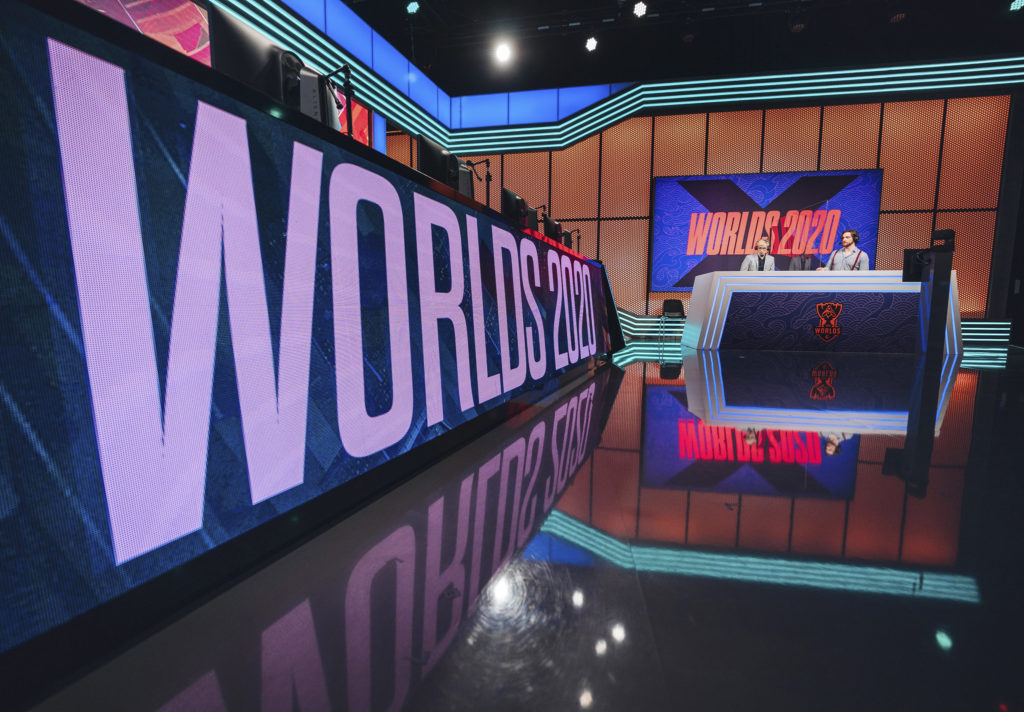
The team was praised in the LEC for their ability to prevent opponents from snowballing a lead from a single advantage. Rogue’s play-by-the-book style often drew them some criticism, however, for its lack of creative engages and predictable pathing. They tended to play each game abiding by a certain set of fundamental rules, which made them easily read and easily defeatable in a best-of-five format. Hearing this criticism, they have changed up their play at Worlds, opting for unpredictable roams and lane swaps. Although they were unable to bring out the win against DWG today, they look in promising form for a team that was often called boring in the LEC.
With all the discussion of MAD Lion’s rookie roster, it can be easy to forget that they were not the only youngsters coming out of the LEC. Although some of Rogue’s players have a little more experience, they are still a relatively fresh-faced group of players. Despite this, nerves do not appear to be an issue.
“I feel like my teammates are not too nervous, and I think we’ve had a good showing so far,” Vander said. “Personally, I am always at least a little bit nervous before games but I have kind of learned how to deal with the nerves, seeing as I’ve already been playing for quite a while.”
Even in their losses, the team have not exhibited any of the first-time jitters expected for newcomers to the international stage—no failed flashes, no over-aggressiveness, none of the typical missplays that stem from panicked voice comms. When every player is frantically trying to win the game themselves, team communication quickly falls apart, and Rogue have looked calmer and more collected than anyone could have expected.
As a veteran, there can often be a lot of pressure to provide out-of-game support for a young team, and to be the voice of reason in a panicked environment. This has not been Vander’s role, however. He has played with several of his teammates for two years already, which has allowed the rest of Rogue to “[pick] up” on what the support knows about controlling nerves. There isn’t a one-size-fits-all cure for youth and inexperience. Vander “can’t just magically teach” his younger teammates something new every day, and he believes everyone on Rogue “has their own role and is trying to do their job.”
The entire team is hungry for success. For Vander, success takes the shape of making it out of groups and actively helping his teammates make good plays and find advantages.
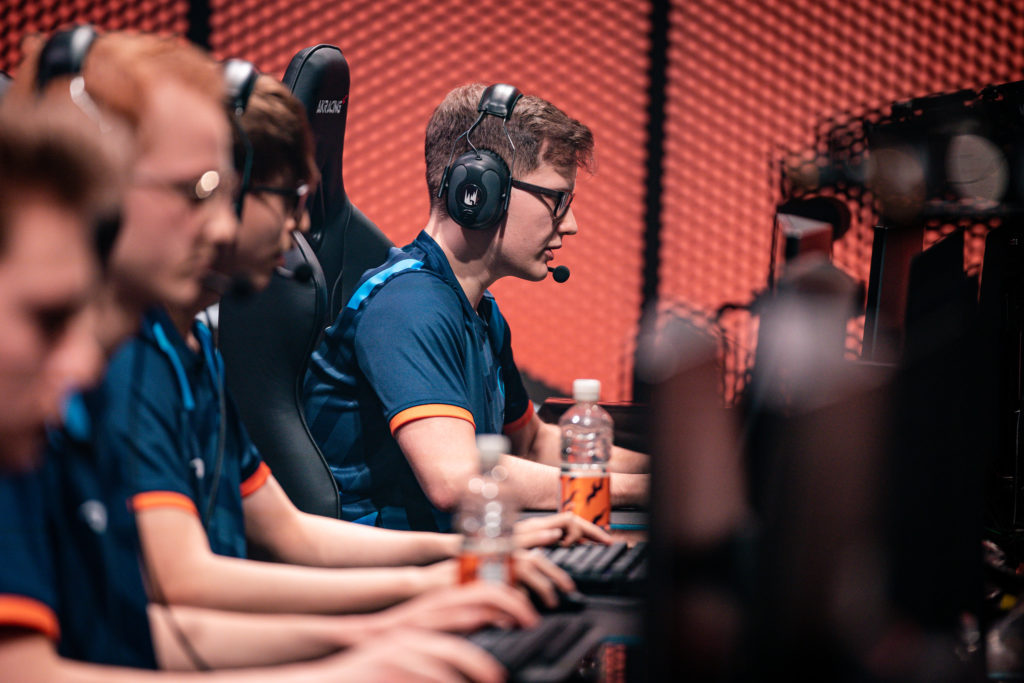
This focused, compartmentalized approach to their gameplay will only be a benefit to Rogue in weeks to come. They will have a hard task on their hands to take games off two of the favorites to win the entire tournament, but Vander isn’t worried about the prestige of DWG and JDG. Despite rumors of complete dominance in scrims against European teams, he explained that he thinks the Korean and Chinese teams are “just kind of scrim players.” Despite the fact that some of these teams “kind of stomped European teams in their scrims all the time,” this scrim aggression isn’t mirrored on stage.
“They don’t really win their lanes that hard, and sometimes they just don’t win the lanes at all,“ he said with regards to their opponents’ on-stage games. “And I feel like, as EU teams, our drafts are a bit better, and I also think our macro is better in a lot of ways.”
LEC fans shouldn’t get too confident, however. Vander says the teamfighting of the LPL and LCK representatives are still “very scary, even if they are losing the game.“
Rogue will play JDG on Oct. 5, their first matchup against the team so far at the tournament. If they can secure the victory, they will go 2-1 and secure themselves a guaranteed second place at the end of the first round robin, a strong showing for a team many thought were doomed in the tournament’s most stacked group.


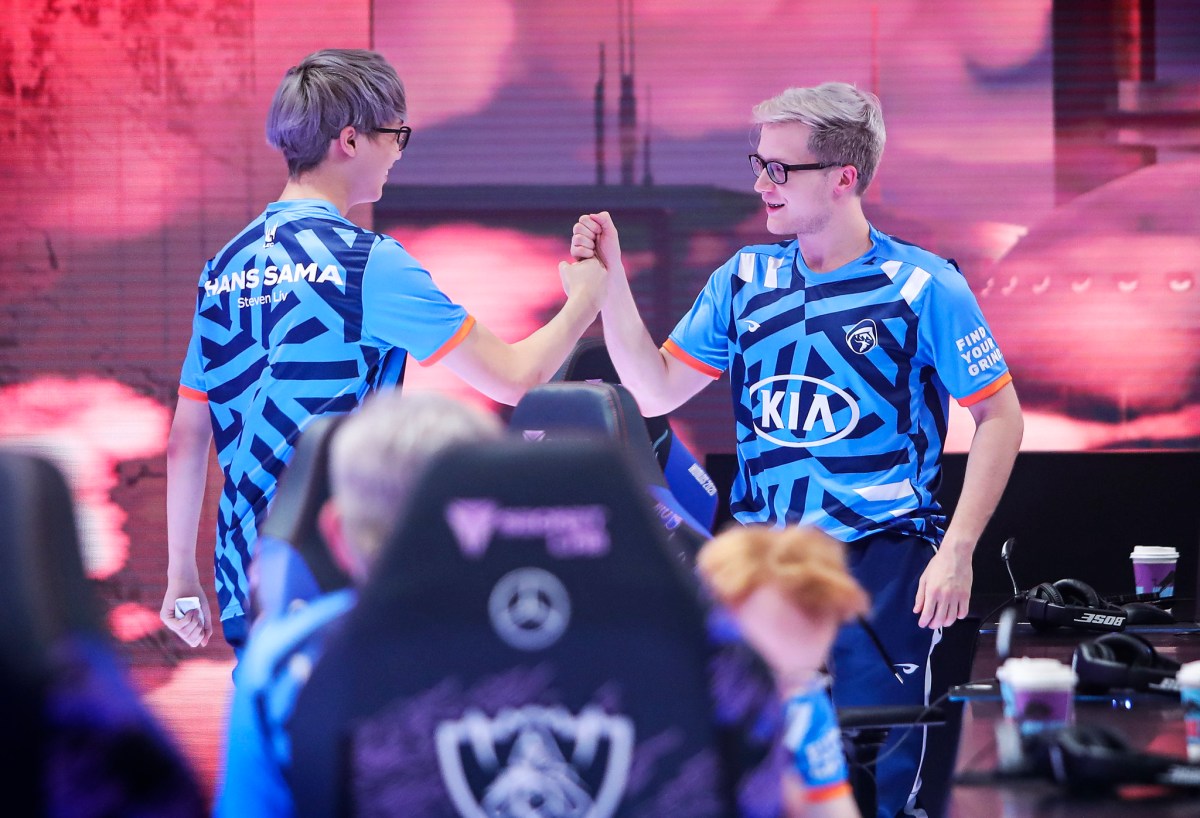
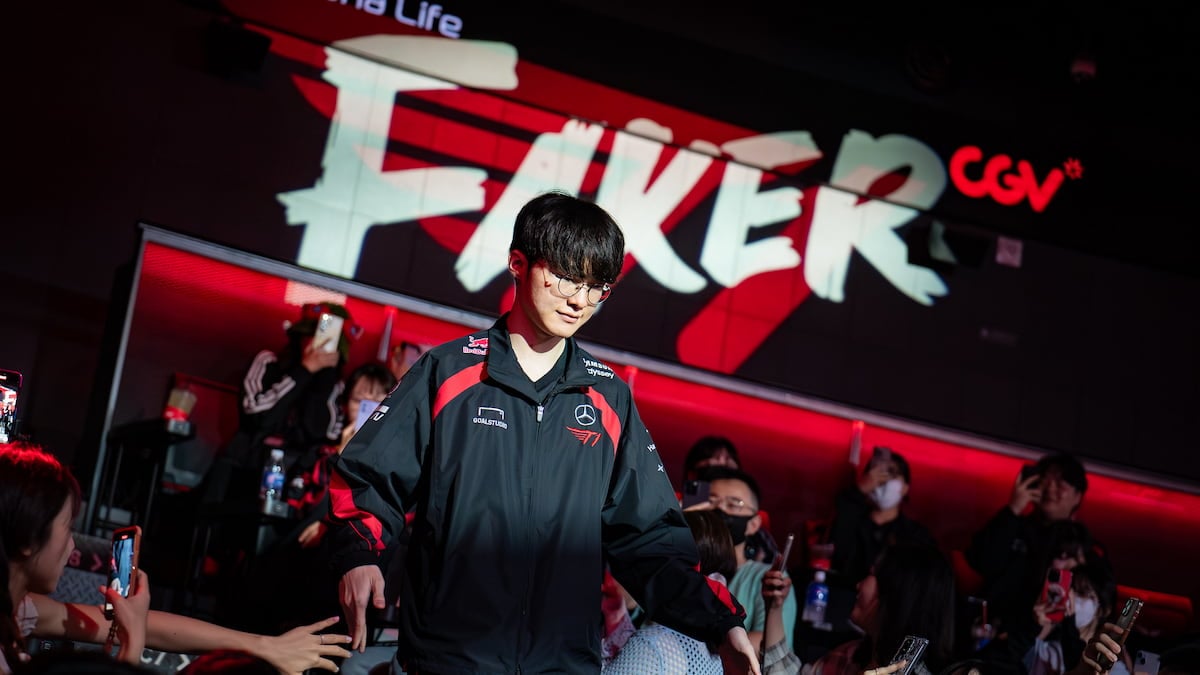
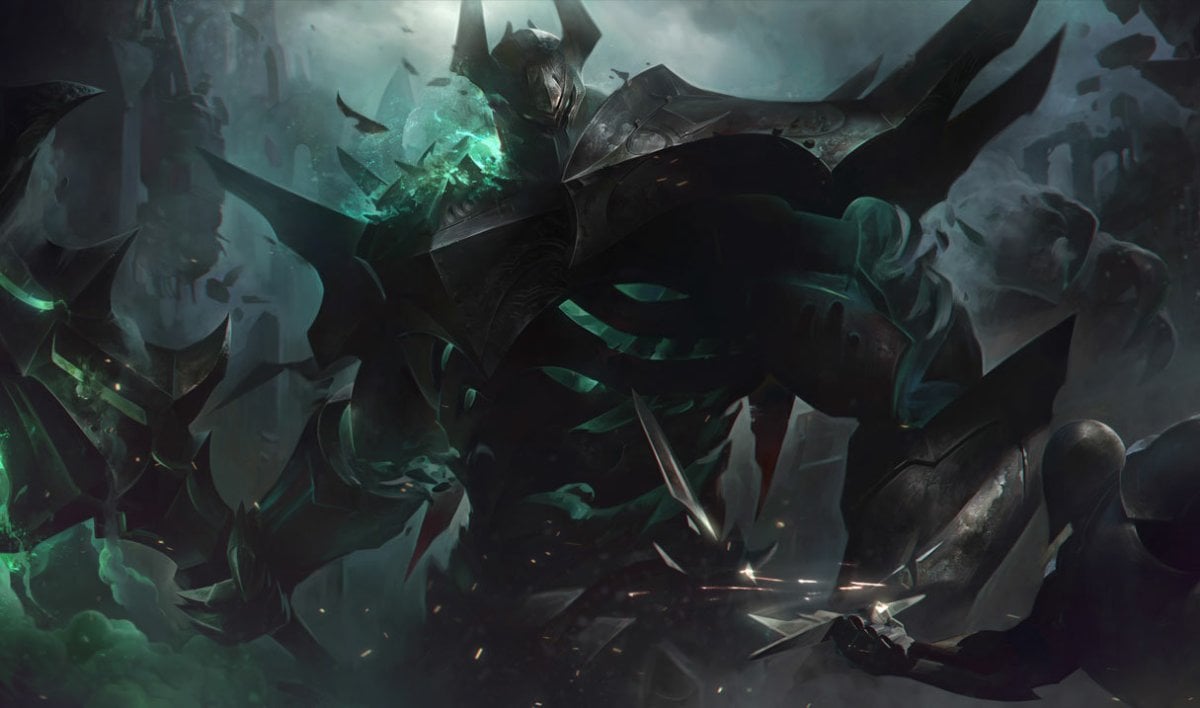
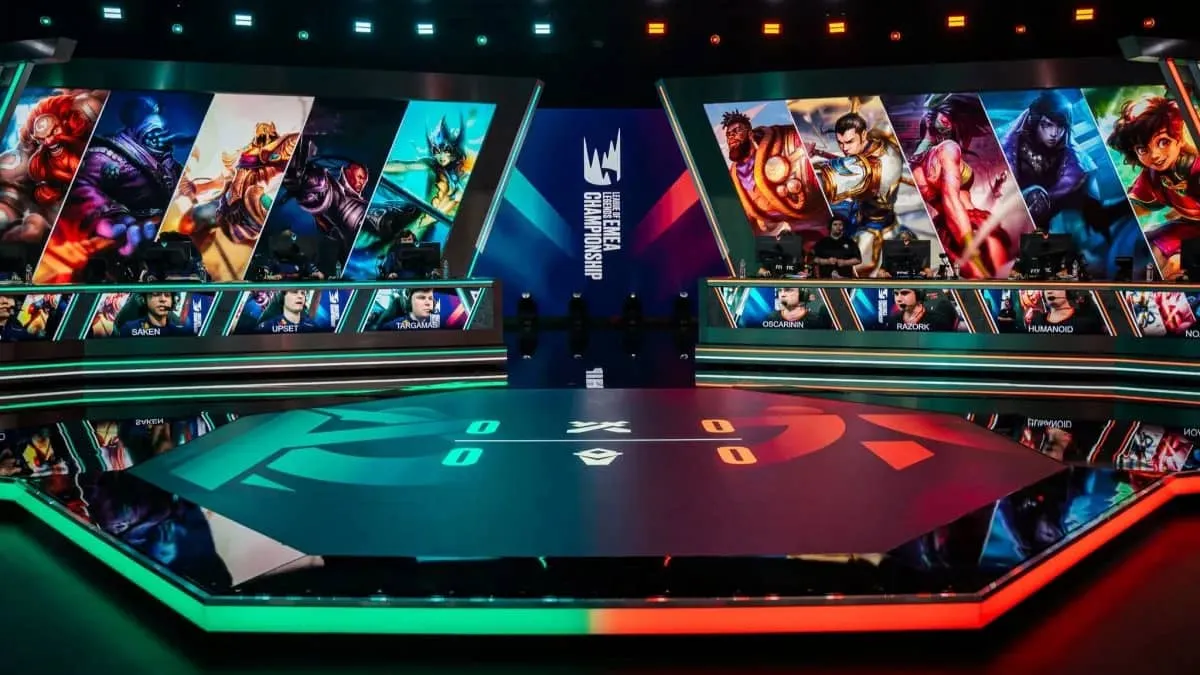

Published: Oct 4, 2020 02:16 pm